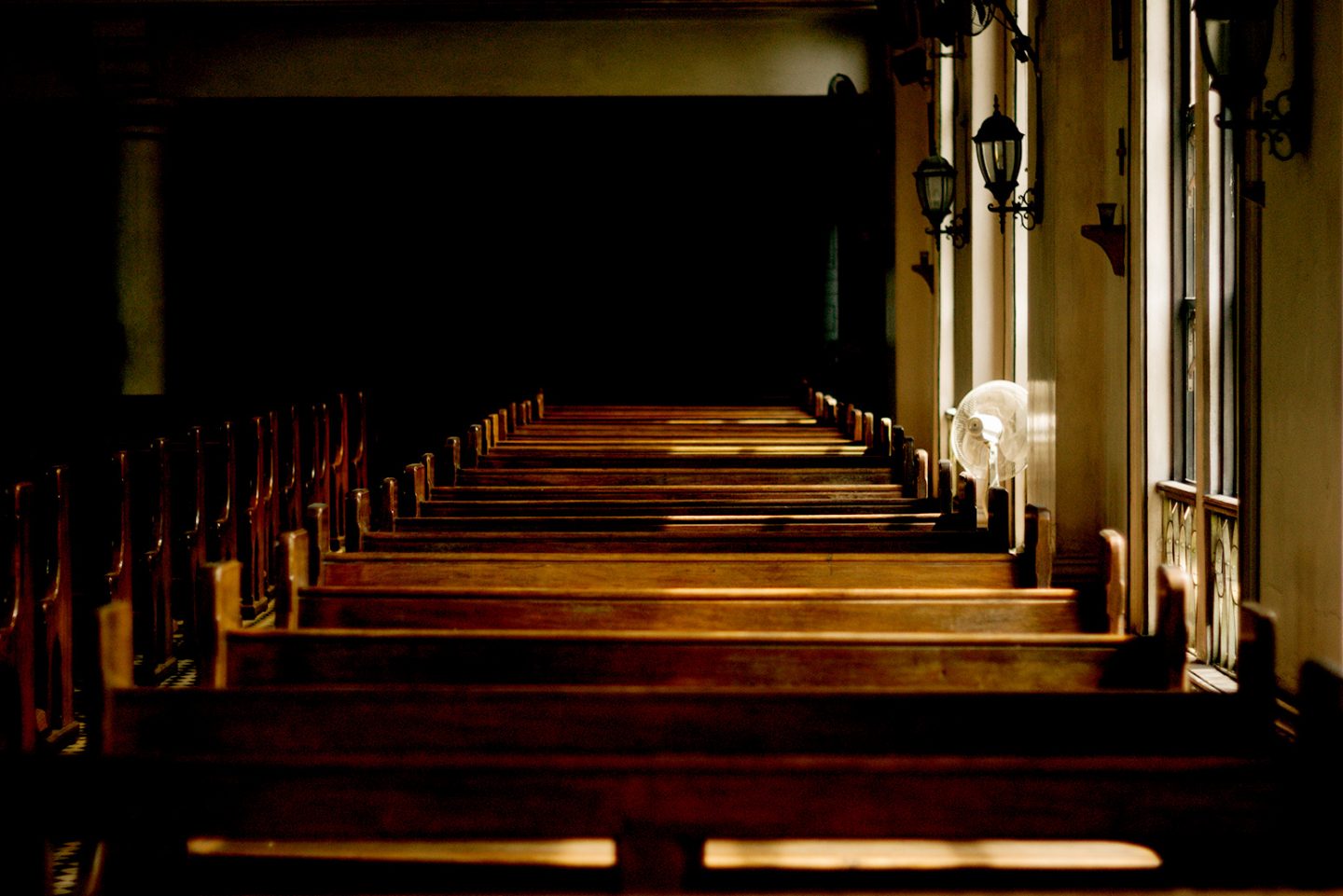I don’t always feel at home in church. Some days I drag myself in (late – sorry pastor), force myself through those oh-not-again songs about emotions I wasn’t feeling, remembering what someone told me about “worship starting with the will”. Read a feel-good verse about God’s love, without interpretation or context. Someone speaks. I’ve heard it before.
I look at the empty seats once occupied by friends – fellow soldiers, leaders, visionaries – many still Christian, but no longer wanting any association with the place where they still reel from wounds they feel were inflicted on them.
On days like these, I somehow hang on, but barely. I try to will myself back, with limited success.
RETHINKING AN UNEASY FAITH
Of course, it hadn’t always been like this. Once upon a time, I felt I belonged in church. In its warm community I learnt, sang, laughed and cried with people who loved me unconditionally. They became my family, told me about Jesus, called me “child of God”, and lowered me into still waters before a cheering crowd.
But many in this family also taught me not to trust science because it had an “atheist agenda“, decrying the mass media as having a “gay agenda”, ending any argument by saying “the Bible says”, and insisting “sex” was a four-letter word. Doubt and depression were things to “pray away”, the church was always good, and anyone in opposition to God’s Truth were bad guys.
Oh, and they’d freak out and hide their children whenever a new movie (or celebrity) came out.
I first came across the term “post-evangelical” in a book by Dave Tomlinson. I laughed at the audacity.
It reeked of esoteric intellectual pride, almost suggesting it’s the natural progression for Christians to outgrow the “evangelical” or mainstream phase: Sheltered Sunday-school kids having their world shaken up by some aggressive agenda-pushing philosophy professor, or ignorant Christians finally experiencing grief and brokenness in the real world.
Others return to the old tradition, finding comfort in culture that, while archaic, has stood the test of time.
I took heart that the post-evangelical impulse wasn’t unique to me and that I didn’t necessarily have to leave the faith I grew up in.
I acknowledged the problems with the modern church: Entanglement with Right-wing politics, blind fundamentalism, cultural warfare, losing sight of the poor, weak theology, prosperity gospel, anti-intellectualism, fear-mongering and holier-than-thou worldviews.
I think there are legitimate Biblical grounds to disagree with the way churches do some things. The way I’m wired, I also happen to learn much more from old books and one-on-one conversations than the pulpit. God would understand if someone leaves the Church, wouldn’t He?
I’ve learnt that my fellow post-evangelicals, progressives, un-fundamental, emergent Christians tend to react to mainline fundamentalism in different ways.
Some adopt a politically-correct Christianity that emphasises grace. No rules, and definitely no politics.
And it’s not because they want to water down the faith to make it more palatable. Rather, they’re absolutely convinced that the Gospel is for all people. Sick of the political wars of their fathers, they focus solely on shaping culture through art, films, and let their tattoos speak for themselves.
A necessary marketing makeover for the old faith our forefathers held dear. Just keeping up with the times.
Some find themselves taking sides in opposition to their parents. Relooking at issues such as war/pacifism, Israel/Palestine, gay marriage, pro-life/pro-choice, they’d prefer to think for themselves than be told how to think.
They’d devour Kant, Marx, and Darwin alongside the Psalms and learn more about other religions than their practitioners. Maybe learn a bit of Greek.
Others return to the old tradition, finding comfort in culture that, while archaic, has stood the test of time – any semblance of purity seen as preferable to its modern commercialised counterpart.
Politically, they’re detached, focusing instead on what the early church used to be in Acts 2:42-47 and believing that that would usher in God’s kingdom from the bottom-up.
But while I was initially excited with the prospect of a renewed, revived church stemming from these movements, it didn’t seem very helpful.
Though natural for the historical church to oscillate between “puritan” and “liberal” movements, labels such as “post-evangelicalism” – guess where we learnt to do that: Evolutionist, backslider, liberal, heretic, postmodern, lukewarm – lead us down the same baby-with-bathwater approach to diversity.
It perpetuates an “us-vs-them” narrative that encourages wall-building rather than loving people different from ourselves.
These walls exist around the single lady offended by their cell group’s matchmaking efforts, the ex-cell leader whose small group has since dissolved, the ex-something, the one struggling with ___, and the guitarist who swayed too much or told he/she sounded bad on stage.
More walls ringfence the divorcee, single parent, the one who can’t remove the cusses from his vocabulary, the one accused of “stumbling” others because of dressing decisions, the one called rebellious because he had doubts, who interprets the Bible differently and who struggles to understand the superiority of “traditional marriage”.
Walls. Labels. Divisions. Presumptions and assumptions. Hurts and wounds. Casualties caused by friendly fire. I’m sure you’re as sick of it as I am. And when offended, your instinct may be to flip tables and storm out the nearest exit. Burn the bridge and block those ignorant, hurtful zealots on Facebook, Twitter and Instagram.
But before you do, take a deep breath. Church is supposed to be messy, because it’s a place for healing, uplifting, rebuilding. If everyone is perfect, 1) they don’t need the help, and 2) they’re lying.
Just because the Church is unlovable doesn’t mean we shouldn’t love the Church. Because it’s still the Church Jesus loves.
Division isn’t the solution; I pray we’ll have the will to steer our criticism to constructive ends. Forgive the ignorance of others and learn to see others through the eyes of grace. Sometimes reconciliation is difficult, but be the one who dares to extend an olive branch.
The simple effort to make peace speaks far more than any theological argument you can bellow.
Running away is the greatest cop-out. React strongly if you must, but react with truth and grace.
If you haven’t been back into church for a while, I pray for the courage to take the step back into love – maybe another church, but still part of the Church. Love cannot exist in isolation.
Running away is the greatest cop-out. Respond strongly if you must, especially when the church begins to look more like the culture at large than what Jesus spoke of. But respond with truth and grace, for love covers a multitude of sins (even the most ugly, painful ones). Respond with hope, because the Kingdom of God is already here – in us.
God’s truth is timeless, and perhaps the Spirit might inspire another reformation. Ironically, I’ve the feeling it’ll be back to historical orthodoxy, albeit sharper, more relevant and more alive than anything you’ve seen before.
But that change can only come through you – you who can’t seem to fit the mould – if you stay in the good fight. Look to Jesus: There is no mould, only beauty in diversity (1 Corinthians 12:12-27). Don’t throw the baby with the bathwater just yet.
Time to write the next chapter of this Kingdom – together.









